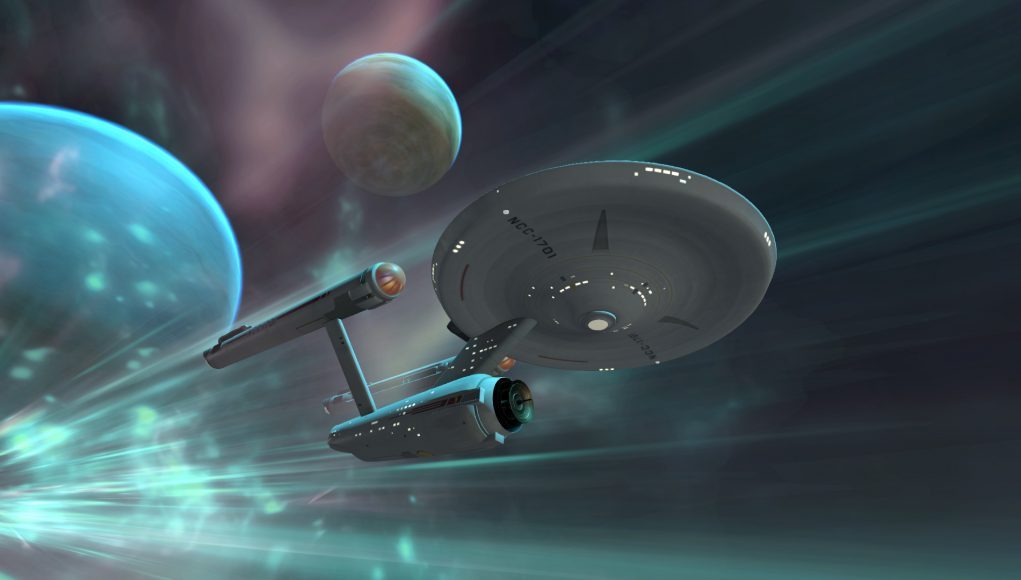Star Trek: Bridge Crew, Ubisoft’s co-op space battle sim, has been removed from Steam and the Oculus Store in ostensible preparation for the game’s complete shutdown.
Bridge Crew was an early success for Ubisoft when it first launched on Oculus Rift, SteamVR and PSVR back in 2017, offering some innovative group gameplay that put you and three others aboard the bridge of a Constitution-class starship for coop battle maneuvers against the Klingon Empire.
On Friday, Ubisoft began pulling the plug on Bridge Crew, delisting the game from Steam and the Oculus Store for both Quest and Rift. Delisted Games maintains this was likely due to an expired licensing agreement between Ubisoft and Star Trek IP-holder ViacomCBS.

The studio is still selling Bridge Crew for both PC and PSVR direct from Ubisoft, as well as via the PlayStation Store for PSVR for a discounted price of $10. That sale goes until February 17th, and we expect it will be gone from the PlayStation Store thereafter.
If you’re just now considering Star Trek: Bridge Crew, there’s really no telling when Ubisoft will pull the plug on multiplayer servers, as the company is staying mum for now. In the meanwhile we’d paste a giant ‘BUYER BEWARE’, and that’s even after giving it a resounding [9/10] in our review back when the game first launched.
Despite making it available for non-VR players, releasing the Next Generation DLC in 2018, and eventually bringing the whole experience to the Quest platform, Ubisoft has been mostly hands-off with Star Trek: Bridge Crew beyond its initial hype phase back in 2017.
This latchkey attitude with updates undoubtedly played into the game’s demise, but the argument can be made that it might have been too soon in VR’s lifecycle for such a specific style of multiplayer game. Sure, the game can be played solo, or with a partial cadre complimented with AI substitutes, but it ultimately excelled when played with a full crew. And yet, Bridge Crew never seemed to garner the sort of vibrant userbase it needed to ensure instant access to its drop-in style, procedurally-generated game sessions.
According to third-party Steam user activity, it only managed a max of 846 users at launch on Steam, going down to a mere 111 two months later. When the game launched on Quest in 2019 (including cross-play), it only managed to attract 533 Steam users concurrently. That’s of course not accounting for PSVR or Oculus numbers, but it’s a telling sign that Bridge Crew was not the VR success Ubisoft was hoping for.
There was some other writing on the wall at the time. Only a few months after launch, Ubisoft announced it was pulling its IBM Watson-driven voice commands, which allowed users to go hands-free when playing with an AI crew. In response to community outrage Ubisoft extended support through 2018, but later phased out voice commands in all versions of the game.
There’s not much else to say about Star Trek: Bridge Crew. Ubisoft has released and subsequently abandoned more built-for-VR games than any other traditional ‘AAA’ developer out there, treating them more like one-off probes into uncharted space. Although similarly devoid of intelligent life, all of its VR multiplayer games are still on sale: Eagle Flight, Werewolves Within, Space Junkies, making Bridge Crew the first—and most successful—of the bunch to get the axe.







